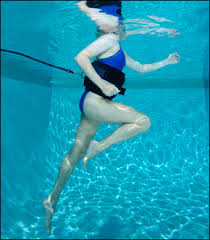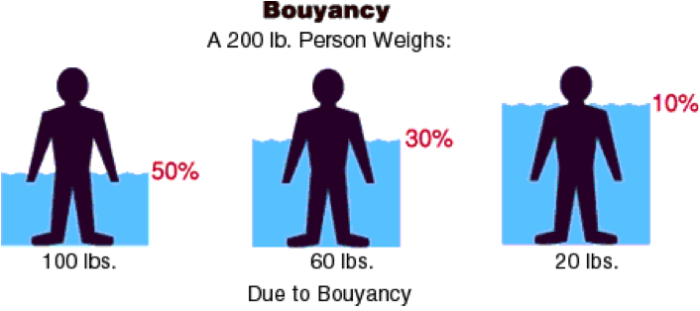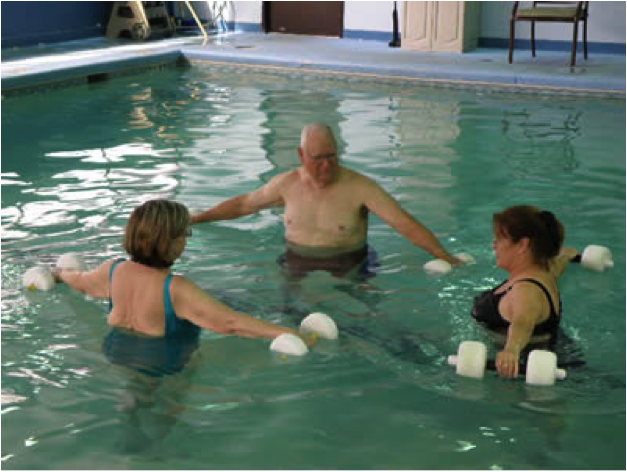Aquatic therapy is a physical therapy intervention involving manual therapy and exercises in the water.
Musculoskeletal, neuromuscular, cardiovascular, pulmonary, and integumentary disorders may be appropriate for aquatic therapy treatment. Arthritic pain, low back pain, obesity, balance or gait deficits, general weakness, and fibromyalgia are common conditions often treated with aquatic therapy.
Benefits include:
- Enhanced motor function, motor learning, and sensory control
- Improved ROM, flexibility, strength, power, endurance, aerobic capacity, balance, gait, symmetrical weight distribution, locomotion, biomechanical alignment, and postural control
- Reduction in pain symptoms, tension, and muscle spasms
Water buoyancy, buoyancy devices, and full or partial immersion decrease body weight and unload joints by reducing gravitational pull and compressive forces on the body. This allows for easier motion and the possibility to perform movements not tolerated on land. Some buoyancy assistive devices include: flotation rings, kickboards, inflatable cervical collars, and buoyancy belts/vests.
Water provides resistance when moving through it. The turbulence and cohesion of the water is affected by the speed of movement- increased speed causes increased resistance, while reduced speed calms the water and reduces resistance. Webbed gloves and hand paddles increase resistance for the upper extremity, while fins and boots increase resistance for the lower extremity.
Water also provides hydrostatic pressure which is the circumferential pressure exerted on an immersed body part. This pressure helps to counteract effusion and edema to cause increased peripheral blood flow and thus reduce swelling.
Temperature of the water can also have a directly affect body temperature and performance. Warmer water is used to enhance mobility, flexibility, and relaxation, while cooler temperatures are used for higher intensity exercise.
Common contraindications for those who should not participate in aquatic therapy include: incontinence, large open wounds, skin infections, bleeding, and severe cases of kidney disease, epilepsy, peripheral vascular disease, or cardiac/pulmonary dysfunction.
Proactive Physical Therapy currently offers Aquatic Therapy through our Carlsbad and 4S Ranch/Rancho Bernardo locations.





